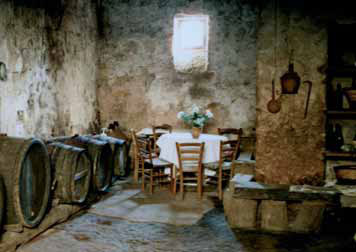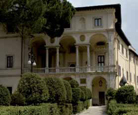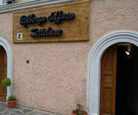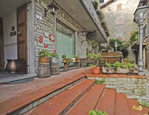 COUNTRY OF ORIGIN
COUNTRY OF ORIGIN• Italy
Albergo Diffuso,developing tourism through innovation and tradition
Results
The impact of the innovation can mainly be illustrated at the local level since an Albergo Diffuso ignites local development where tourism can be a leading sector if properly stimulated, although, in order to achieve the highest level of positive impacts, regional and national administrations must adopt such a model, rendering it possible in legal and economic terms. Laws on tourism must be renovated in order to formally recognize this new type of hospitality giving it the same dignity of traditional hotels and of other models of hospitality. This would make it possible for the entrepreneurs and the local administrations that wish to adopt this innovation to access financial and non-financial services which are usually dedicated to SMEs and to entrepreneurs. Specific credit schemes and/or public financing mechanisms could be set up to support the creation of Alberghi Diffusi, since their underlying philosophy is to promote local entrepreneurship, restoring historical centers and combating their abandon through their revitalization, having Alberghi Diffusi not only an economic but also a strong social return.

Since there is no environmental impact, and there is nothing “new” to be created, this innovation can easily be reproduced in other countries and can represent a possibility for their territorial development. The approach described is easily reproducible since it doesn’t involve complicated technical aspects, but it involves high capacities in tourist marketing and in facilitating participatory approaches to development.
Being based on the valorisation of endogenous potentials it is a highly sustainable innovation in economic, institutional and social terms. Specifically, in institutional terms, a viable Albergo Diffuso will be effective if there is the agreement of the local actors of the area and in social terms it is sustainable because it mainly applies to areas which are considered marginal, usually out of the ordinary development schemes and models. A successful Albergo Diffuso is also economically sustainable because it is a market-driven innovation that properly works when there is a demand for this new type of tourism.
The following examples represent two very different cases of Albergo Diffuso born under different circumstances and with different approaches.
Villa Retrosi
The cooperative La Conca Amatriciana was set up in 2001 and had the aim of supporting the revitalization of Retrosi, a small fraction of the municipality of Amatrice, set in the province of Rieti in the Italian Lazio Region. The objective of the cooperative was to implement activities which, through the support of entrepreneurial activities, would stop the abandoning of the residents of the village. The establishment of the Albergo Diffuso Villa Retrosi, seemed the proper way to stimulate entrepreneurship based on the utilization of the local resources which indicated that tourism was to be considered the leading sector of the local economy.



The success of the initiative is proven by the following figures:
- The number of members of the cooperative has grown up to 37.
- The capital of the cooperative at present amounts to € 500.000,00.
- The Albergo Diffuso started in 2002 with only 3 apartments; while at present 14 are part of it. Other 5 will be ready in 2009.
- The real estate value of the apartments in the village (including those that are not part of the hotel) has doubled in the past 3 years thanks to the activities undertaken by the Albergo Diffuso and by the cooperative.
- The cooperative was able to accede to European funds (€ 730.000,00), which have been used to restore apartments and to realize interventions of urban décor.
- In the year 2007 the apartments have been occupied for an average of 80 days each, while normally the “second houses” are occupied for just 15 days a year, providing an average yearly turnover of € 4.000,00 each.
- The break-even point has been reached in 2008 with 14 apartments.
- A club house and a recreational centre with sporting facilities and swimming pool has been realized and is and integrating part of the hotel.
- The tendency of abandoning the village has been inverted. The number of residents has increased of 16 units, and finally it is possible to hear the noise of children playing.
- New small businesses have been generated, in particular, a fruit a vegetable producer which sells its products in the village, a wood producer which supplies wood for fireplaces also to the tourists, and a new camper site.
Created in March 2007 with the support of BIC Lazio, the Albergo Diffuso Settelune is set in Montelanico, a municipality in the Province of Rome. The area suffers the vicinity with Rome, although it can count on its nature and its woods being Montelanico one of the municipalities of the mountain chain known as “Monti Lepini”.
The initiative was launched by one local entrepreneur that saw in the innovation a means to stimulate the local economy and to simultaneously provide income for the sustainment of the family.
The structure is composed of 7 apartments and other 7 rooms scattered around a reception that is based in the main square of the historical centre. Having to promote the Albergo Diffuso and the territory in the attempt to attract tourists in the area, the entrepreneur has networked its activities with other economic operators that recognized the mutual benefit that could spring from a solid collaboration. Various artisans and artists, as well as restaurants and sport facility managers have started to collaborate for the creation of specific tourist packages that will shortly be proposed to travel agencies and therefore to tourists.







